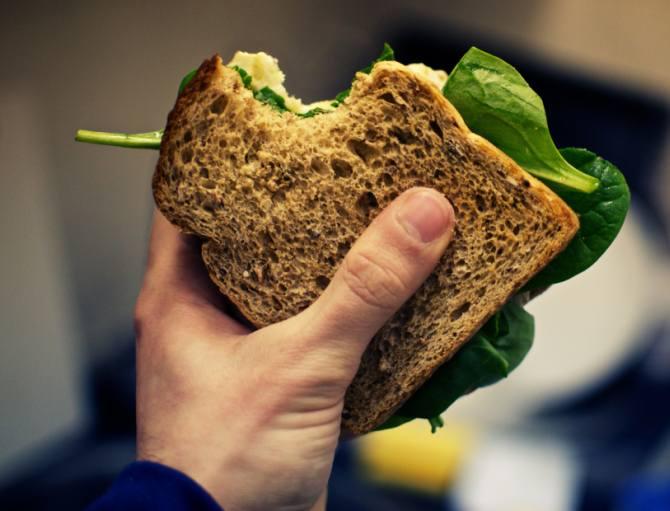There is no such thing as a perfect Diabetes Diet.
The important thing is to follow a meal plan that is tailored to personal preferences and lifestyle and helps manage normal blood glucose, cholesterol and triglycerides levels, blood pressure, and weight management.
On the occasion of the World Diabetes Day, we tell you what you must know about the disease and the role your diet plays in controlling or worsening the disease.

Photograph: Paul Rysz/Wikimedia Commons
Some diseases can be silent predators, offering few or no warning signs. One such disease is diabetes. Not only does diabetes affect almost 50. 8 million people in India (this was in 2011 and according to latest estimates, India will have more than 100 million diabetics by 2030), but 25 per cent don’t even know they have it.
What is diabetes?
As food is digested, it is broken down into glucose (also known as sugar), which provides energy and powers our cells.
Also Read: 5 steps to control your blood sugar
Insulin, a hormone made in the pancreas, moves the glucose from the blood to the cells. However, if there is not enough insulin or the insulin secretion isn't working properly, then the glucose stays in the blood and causes blood sugar levels to rise.
There are three main types of diabetes: Type 1, Type 2, and gestational diabetes. Type 1 result from the pancreas no longer being able to make insulin and is usually found in children, teens.
The most common form of diabetes is Type 2.
Risk factors include being overweight; not getting enough physical activity; having a parent or sibling with diabetes; being African-American, Asian-American, Latino, Native American, or Pacific Islander; being a woman who had gestational diabetes or gave birth to a baby who weighed more than nine pounds; having high blood pressure, having low high density cholesterol (good cholesterol) or high triglycerides or having pre-diabetes.
Diabetes Diet: What is it all about?
Food can either promote diabetes or help prevent it, depending on how it affects the body’s ability to process glucose.
People should avoid foods that cause a sudden spike in blood sugar levels and those that raise cholesterol, such as processed foods, foods high in saturated fats or trans fats, and foods with added sugars and syrups.
Processed foods as well as items high in fat or sugar not only can disrupt the balance between glucose and insulin, resulting in inflammation, but can also contribute to risk factors such as being overweight.
Carbohydrates, too, need to be watched.
Also Read: 5 dangers of artificial sweeteners
While they are necessary to fuel the body, some carbohydrates raise blood glucose levels more than others.
The glycemic index (GI) measures how a carbohydrate-containing food raises blood glucose in the body.
Low GI measure foods raise blood glucose levels in blood slowly and keep you full for longer.
High GI foods on the other hand include foods which cause a sudden spike in blood sugar levels and do not keep stomach full for sufficient time.
There is no specific Diabetes Diet. The important thing is to follow a meal plan that is tailored to personal preferences and lifestyle and helps achieve goals for blood glucose, cholesterol and triglycerides levels, blood pressure, and weight management.
Research shows that both the amount and the type of carbohydrate in food affects blood glucose levels. Studies also show that the total amount of carbohydrate in food, in general, is a stronger predictor of blood glucose response than the GI.
Dry beans and legumes, all non-starchy vegetables, and many whole-grain breads and cereals all have a low GI.
A Diabetes Diet is virtually the same as a healthy diet for anyone.
Also Read: It's possible! Reversing diabetes before it takes hold!
Eat reasonably sized portions to avoid gaining weight, and include Low GI fruits and vegetables; whole grains rather than processed ones; fish and lean cuts of meat; beans and legumes and liquid oils.
Limit saturated fats and high-calorie snacks and desserts like chips, cake, and ice cream, and stay away from trans fats altogether.
Thirty minutes of exercise most days of the week and losing 5 to 10 per cent of body weight, if a person is overweight, are also crucial in reducing the risk of Type 2 diabetes.
Finally, anyone experiencing frequent urination, extreme thirst or hunger, unexplained weight loss, fatigue, blurry vision, or frequent infections should see a doctor for a blood test to check for diabetes.
With careful attention and healthy lifestyle choices diabetes can be kept under control.
Timing of meals in a Diabetes Diet
Planning a Diabetes Diet is not simply a matter of ‘what one eats’, but also when one eats.
One should not give long gaps between meals.
A gap of more than 3.5 to 4 hours can destabilise body glucose levels and can be fatal to diabetics. Regular monitoring of one’s sugar levels before going to bed and after waking up can help one keep a check on the levels and act accordingly to avoid any fatal consequences.
If one checks blood glucose at bedtime and find it to be low, for example below 6 millomoles, it is advisable to take some long-acting carbohydrate before retiring to bed to prevent night-time hypoglycemia. So it is not only the quantity or quality of meals that is to be managed but also the timings of consuming meals which has to be taken care of.
A well planned Diabetes Diet with all these guidelines followed properly, can help a diabetic, lead a normal life with control over diabetes!












 © 2025
© 2025